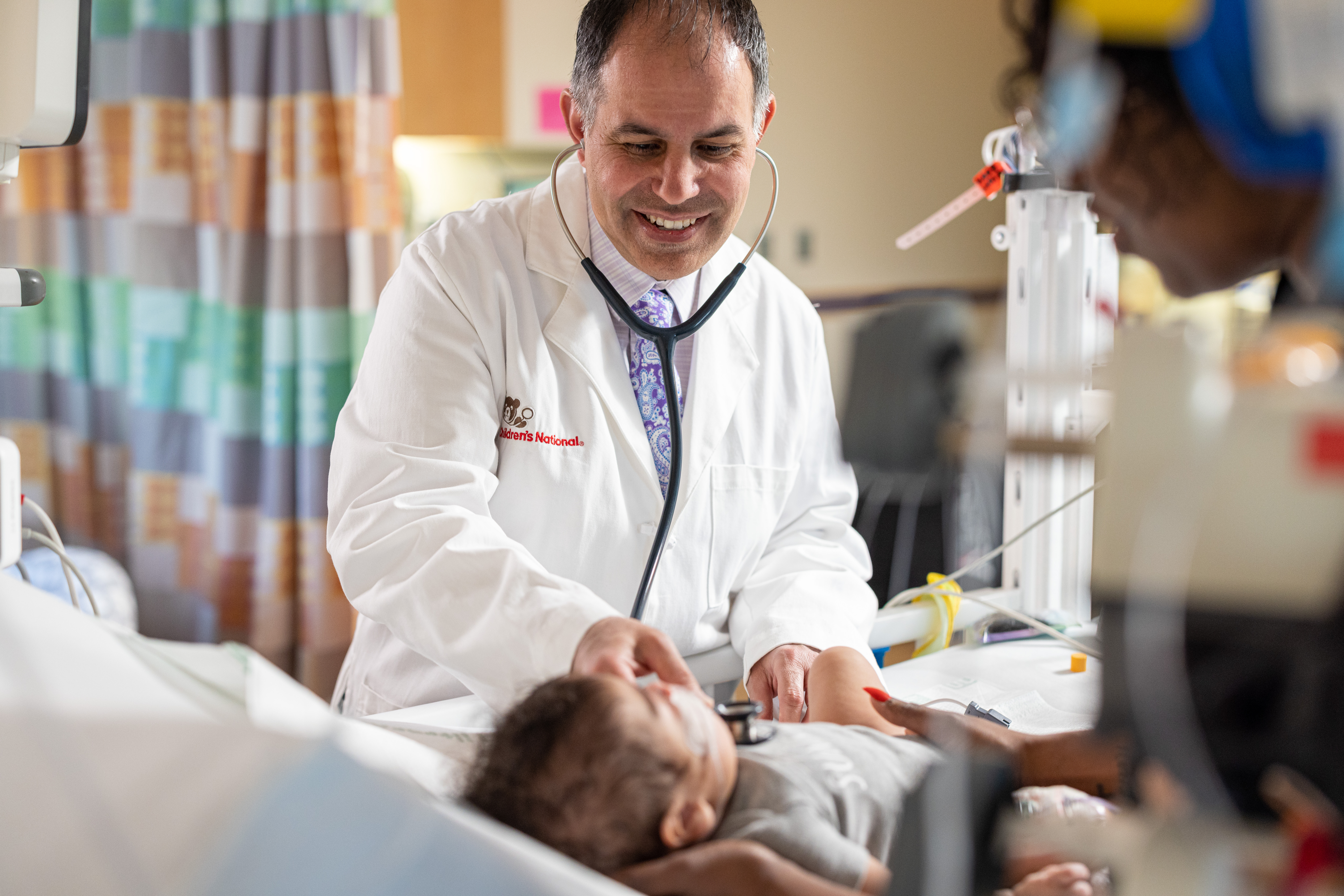Condition
Atrioventricular Canal (AV canal or AVC)
What You Need to Know
An atrioventricular (AV) canal defect is a large hole in the center of the heart.
Key Symptoms
The most common symptoms of an AV canal defect are:
- Tiredness
- Sweating
- Fast, heavy breathing
- Fast heart rate
- Trouble feeding
Diagnosis
Doctors typically diagnose an AV canal defect by:
- Ultrasound during pregnancy
- Chest X-ray
- Electrocardiogram (ECG)
- Echocardiogram (echo)
- Cardiac Catheterization
Treatment
Treatments for an AV canal defect may include:
- Surgery
- Medication
- Nutrition
- Infection control
Schedule an Appointment
Our pediatric specialists provide personalized care for your child’s physical, mental and emotional health needs. Meet our providers and schedule an appointment today.
Frequently Asked Questions
What is an atrioventricular canal defect in a child?
What causes an AV canal defect in a child?
What are the symptoms of an AV canal defect in a child?
How is an AV canal defect diagnosed in a child?
How is an AV canal defect treated in a child?
What are possible complications of an AV canal defect in a child?
How can I help my child live with an AV canal defect?
Penelope's Story
Before Penelope was even born, she had a team of Children's specialists ready with a treatment plan for her heart defect.
Departments that Treat Atrioventricular Canal (AV canal or AVC)

The Zickler Family Prenatal Pediatrics Institute
The Zickler Family Prenatal Pediatrics Institute at Children's National Hospital in Washington, D.C., provides specialized care for babies during pregnancy, delivery and after birth.

Help Kids and Make a Difference
Invest in future cures to help children have brighter futures.









